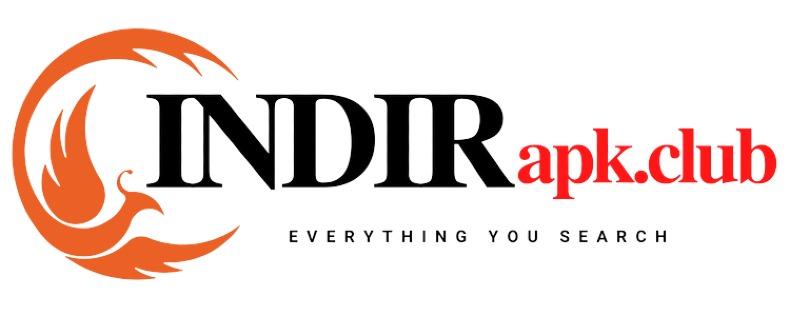The pervasive influence of technology on our lives is nothing short of revolutionary. It has redefined the way we communicate, work, access information, and entertain ourselves. In this comprehensive blog post, we will delve into the intricate and profound ways technology has transformed our daily existence.
Communication Evolution
Communication is arguably one of the most impacted aspects of our lives due to technology. It has evolved from handwritten letters and landline phones to instant messaging, video conferencing, and social media platforms. These innovations have not only shrunk the world but also altered the nature of personal and professional relationships.
Instant Messaging
- Instant Connectivity: Platforms like WhatsApp, Facebook Messenger, and WeChat have made real-time conversations with friends and family around the world a routine affair.
- Business Communication: Tools like Slack have revolutionized workplace communication, making team collaboration more efficient.
Social Media
- Sharing and Connection: Facebook, Instagram, Twitter, and others have redefined how we share our lives, fostering connections and creating new modes of self-expression.
- Impact on Society: The role of social media in shaping public discourse and activism has become increasingly prominent.
Video Conferencing
- Remote Work and Education: Services such as Zoom and Microsoft Teams have become essential tools for remote work, education, and maintaining connections during the COVID-19 pandemic.
- Global Collaboration: Video conferencing has enabled businesses to collaborate with partners and clients worldwide.
The Information Age
The internet has transformed how we access information, learn, and stay informed. Here’s how:
Search Engines
- Instant Answers: Google, Bing, and others have turned the internet into a vast knowledge repository, enabling us to find answers to almost any question in seconds.
- SEO and Digital Marketing: The emergence of search engine optimization (SEO) and digital marketing has revolutionized content creation and online visibility.
Online Education
- Accessible Learning: E-learning platforms like Coursera, edX, and Khan Academy have democratized education, allowing people to acquire new skills and knowledge from the comfort of their homes.
- Lifelong Learning: The availability of online courses and resources has encouraged lifelong learning and skill development.
News and Media Consumption
- Real-Time Updates: Traditional print newspapers have given way to digital news sources and social media, allowing us to access news in real-time, sometimes to the point of information overload.
- Media Literacy: The digital age has brought about discussions on media literacy and the need to discern credible sources from misinformation.
Entertainment Revolution
Technology has revolutionized the entertainment industry, offering endless options for consuming media content.
Streaming Services
- On-Demand Content: Netflix, Amazon Prime, and Disney+ have popularized binge-watching, offering a vast library of movies and TV shows.
- Content Creation: The rise of streaming platforms has led to a renaissance in original content production.
Music Streaming
- Access to Music: Spotify, Apple Music, and Pandora have made it possible to access millions of songs on-demand, transforming the way we discover and enjoy music.
- Independent Artists: The digital age has empowered independent musicians to reach a global audience without relying on traditional record labels.
Video Games
- Immersive Experiences: Gaming consoles, virtual reality, and mobile apps have brought immersive experiences to millions, creating new communities and career opportunities for gamers and streamers.
- Esports: Competitive gaming has become a multi-billion-dollar industry, with professional esports players and leagues gaining widespread recognition.
Healthcare Advancements
Medical technology has made significant strides in improving healthcare, with innovations such as:
Telemedicine
- Remote Consultations: Telemedicine has enabled remote consultations, providing access to medical care even in remote areas.
- Healthcare Accessibility: The COVID-19 pandemic accelerated the adoption of telehealth, making healthcare more accessible.
Wearable Devices
- Personal Health Monitoring: Fitness trackers and smartwatches like Fitbit and Apple Watch enable individuals to monitor their health, encouraging a more proactive approach.
- Data-Driven Health: Health data collected from wearables is used for personalized health recommendations and early disease detection.
Medical Imaging and Robotics
- Precision Diagnosis: Advanced imaging technologies and surgical robots have enhanced diagnostic accuracy and minimally invasive procedures.
- Surgical Advancements: Robotic-assisted surgeries have reduced patient recovery times and increased the precision of surgical procedures.
Work and Productivity
The workplace has undergone a digital transformation, offering both opportunities and challenges.
Remote Work
- Flexibility and Efficiency: Technology has made it possible for employees to work from home or anywhere with an internet connection, changing the landscape of work.
- Balancing Work-Life: Remote work has raised discussions about maintaining work-life balance and the blurring of boundaries.
Collaboration Tools
- Streamlined Workflow: Software like Slack, Trello, and Asana streamline project management and facilitate communication in the workplace.
- Global Teams: These tools have enabled businesses to work with teams and clients worldwide seamlessly.
Artificial Intelligence (AI)
- Automation: AI is being integrated into various industries, automating repetitive tasks and making data-driven decisions more efficient.
- Job Displacement: The rise of AI has also led to discussions about potential job displacement and the need for workforce retraining.
Transportation and Mobility
The automotive industry is experiencing a technological revolution:
Electric Vehicles (EVs)
- Environmental Benefits: Electric cars have gained popularity for their environmental benefits and the advancement of charging infrastructure.
- Automaker Transition: Major automakers are investing heavily in EV technology, signaling a shift toward electric mobility.
Autonomous Vehicles
- Safer and Efficient Travel: Self-driving cars are on the horizon, promising safer and more efficient transportation.
- Challenges and Regulations: The development and deployment of autonomous vehicles raise legal, ethical, and safety concerns.
Ride-Sharing
- Urban Mobility: Services like Uber and Lyft have reshaped urban transportation, reducing the need for car ownership.
- Future Mobility: Ride-sharing companies are also exploring options like autonomous vehicles and electric bikes.
Smart Homes and IoT
The Internet of Things (IoT) is turning homes into smart, connected environments:
Smart Appliances
- Energy Efficiency: From thermostats to refrigerators, appliances can be controlled remotely for increased energy efficiency and convenience.
- Smart Homes: The concept of a fully automated, interconnected smart home is becoming a reality for many.
Voice-Activated Assistants
- Voice Commands: Devices like Amazon Echo and Google Home allow voice commands to control various aspects of our homes.
- Privacy Concerns: The always-on nature of these devices has raised concerns about privacy and data security.
Challenges and Considerations
As technology reshapes our lives, we must also grapple with the challenges it presents:
Privacy Concerns
- Data Collection and Monetization: The collection and monetization of personal data have raised significant privacy issues, leading to debates about data security and ownership.
- Regulatory Responses: Governments and regulatory bodies are enacting data privacy laws and regulations to protect individuals.
Digital Addiction
- Excessive Screen Time: Excessive screen time and social media use have been linked to mental health issues, including anxiety, depression, and a sense of isolation.
- Digital Detox: Digital detox strategies and awareness campaigns are emerging to combat digital addiction.
Job Displacement
- Automation and AI: Automation, AI, and robotics may displace certain jobs, necessitating the retraining and reskilling of the workforce.
- New Skill Demands: The workforce of the future may require skills related to AI, data analytics, and digital technology.
Environmental Impact
- E-Waste: The production and disposal of electronic devices contribute to e-waste and have significant environmental implications.
- Sustainability Initiatives: Tech companies are increasingly focusing on sustainability and reducing their environmental footprint.
Technological Inequality
- Digital Divide: Not everyone has equal access to technology and the digital skills needed to thrive in the digital age, leading to a digital divide.
- Closing the Gap: Efforts are being made to bridge the digital divide through initiatives like subsidized internet access and digital literacy programs.
Ethical Considerations
- Ethical AI: The development and use of AI systems raise ethical questions about bias, transparency, and accountability.
- Technological Responsibility: Tech companies are being held accountable for ethical decisions, such as content moderation and algorithmic transparency.

Technology has unquestionably transformed our lives in ways that were once unimaginable. It has made the world more interconnected, knowledge more accessible, and our daily routines more efficient. However, we must remain vigilant about the challenges it poses, including issues related to privacy, mental health, employment, the environment, and accessibility. As we navigate this brave new world, it is imperative to strike a balance that maximizes the benefits while addressing the challenges, ensuring that technology continues to serve as a tool for the betterment of society and the quality of our lives.


xvhyrt
I liked it as much as you did. Even though the picture and writing are good, you’re looking forward to what comes next. If you defend this walk, it will be pretty much the same every time.
Hi Neat post There is a problem along with your website in internet explorer would test this IE still is the market chief and a good section of other folks will pass over your magnificent writing due to this problem
I loved you better than you would ever be able to express here. The picture is beautiful, and your wording is elegant; nonetheless, you read it in a short amount of time. I believe that you ought to give it another shot in the near future. If you make sure that this trek is safe, I will most likely try to do that again and again.
Greetings, my dear one, I would like to express my admiration for this exceptionally well-written post that encompasses nearly all essential information. I eagerly anticipate encountering similar postings in the future.
very informative articles or reviews at this time.
Элвис Пресли, безусловно, один из наиболее влиятельных музыкантов в истории. Родившийся в 1935 году, он стал иконой рок-н-ролла благодаря своему харизматичному стилю и неповторимому голосу. Его лучшие песни, такие как “Can’t Help Falling in Love”, “Suspicious Minds” и “Jailhouse Rock”, стали классикой жанра и продолжают восхищать поклонников по всему миру. Пресли также известен своими выдающимися выступлениями и актёрским талантом, что сделало его легендой не только в музыке, но и в кинематографе. Его наследие остается живым и вдохновляет новые поколения артистов. Скачать музыку 2024 года и слушать онлайн бесплатно mp3.